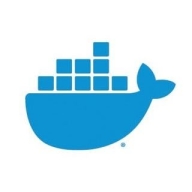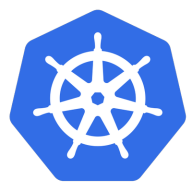

Docker and Kubernetes are key competitors in the container orchestration category. Kubernetes has a competitive edge due to its robust scalability features and widespread cloud provider support.
Features: Kubernetes is known for its scalability, autoscaling features, and resilience. It integrates well with cloud providers such as AWS, Google Cloud, and Azure. Kubernetes also offers high availability and storage orchestration, which are essential for building cloud infrastructures. Docker, on the other hand, is valued for its simplicity and ease of use. It provides efficient container management with robust security features and straightforward integration, making it accessible to developers.
Room for Improvement: Kubernetes encounters challenges with complex setup procedures, integration, and user-friendly access. Improving debugging interfaces and security features without third-party reliance is necessary. Docker, while user-friendly, could enhance stability and management features. Better documentation and integration with tools like Docker Swarm could improve its scalability and security.
Ease of Deployment and Customer Service: Kubernetes offers deployment flexibility across hybrid, public, and private clouds. However, the initial setup can be complex, with varying support levels depending on distribution. Docker is recognized for its ease of scaling containers across clouds, but users note issues with support effectiveness and documentation. Both platforms benefit from strong community support.
Pricing and ROI: Kubernetes, being open-source, has no licensing fees but requires investments in infrastructure, affecting costs. Efficient management can significantly improve ROI through optimized container use. Docker's open-source nature provides initial cost-effectiveness, but scaling with Docker Swarm can increase expenses. Both can deliver substantial ROI by implementing agile systems for faster time-to-market and cost savings.
| Product | Market Share (%) |
|---|---|
| Kubernetes | 6.2% |
| Docker | 4.5% |
| Other | 89.3% |


| Company Size | Count |
|---|---|
| Small Business | 22 |
| Midsize Enterprise | 4 |
| Large Enterprise | 34 |
| Company Size | Count |
|---|---|
| Small Business | 25 |
| Midsize Enterprise | 9 |
| Large Enterprise | 47 |
Docker is a versatile container platform used for running and deploying applications in isolated environments, ensuring consistency across development, testing, and production.
Docker offers solutions for containerizing applications, automating deployments, and managing infrastructure through its robust platform. It supports CI/CD workflows, provides a development platform for container management, and simplifies the setup by using streamlined tools. Organizations leverage Docker for building microservices, running UI applications, deploying web services, and setting up secure environments. It also facilitates managing containers via Kubernetes and creating development stacks for enhanced productivity.
What are Docker's key features?Industries implement Docker for CI/CD pipelines, scaling services, and improving resource utilization. Tech companies use Docker for building and deploying their software in isolated environments. Finance and healthcare sectors deploy applications securely, ensuring compliance with regulatory standards. Educational institutions set up consistent development environments for coding labs and training students in advanced technologies.
Kubernetes (K8s) is an open-source system for automating deployment, scaling, and management of containerized applications.
It groups containers that make up an application into logical units for easy management and discovery. Kubernetes builds upon 15 years of experience of running production workloads at Google, combined with best-of-breed ideas and practices from the community.
We monitor all Container Management reviews to prevent fraudulent reviews and keep review quality high. We do not post reviews by company employees or direct competitors. We validate each review for authenticity via cross-reference with LinkedIn, and personal follow-up with the reviewer when necessary.